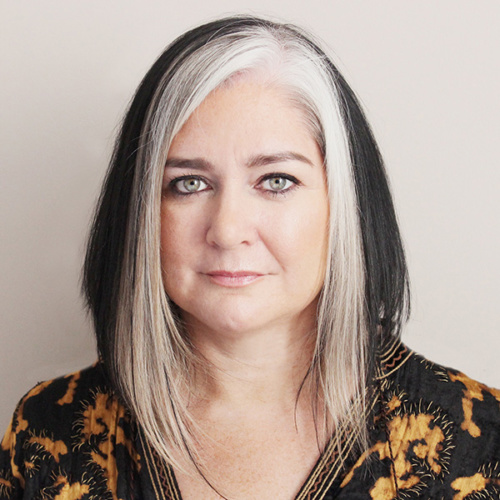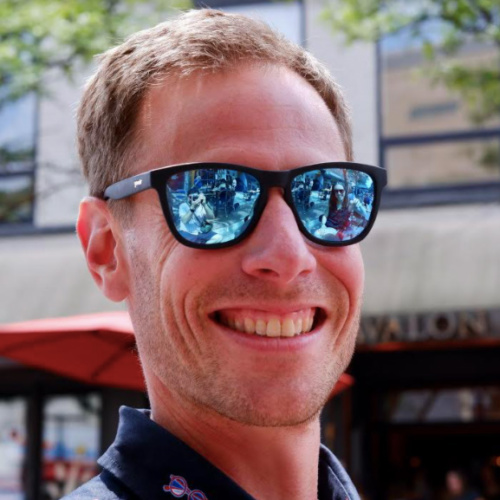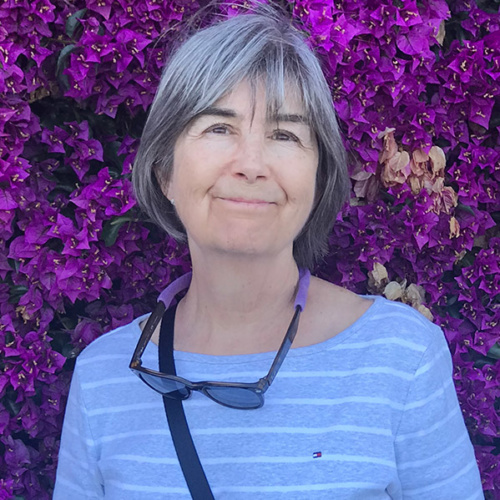Music Career Finder
Start Here:
Booking Agent
Career Overview
Booking Agents find performing opportunities, plan tours, negotiate performance fees and terms, and execute contracts for artists on their roster.
Alternate Titles
Booking Manager, Agent
Salary Range
$20,000 to $1,000,000+1

How To Become a Booking Agent
- Career Description
- Salary
- Career Outlook
- Career Path
- Experience & Skills
- Education & Training
- How to Get Started
- Additional Resources
- Sources
- References
Career Description
A Booking Agent books live performances for the artists on their roster. In this role, they work with Talent Buyers, Concert Promoters, Venue Managers, Festival Directors, Ticket Service Directors, Tour Operators, cultural organizations, municipalities, and others to secure dates, negotiate terms, make agreements, and then follow up to make sure contracts are signed and adhered to. These contracts include performance fees to be paid to the artist, plus performance-related costs and needs such as concert lighting and sound, and touring-related costs and needs like lodging, meals, and transportation to and from the event.
Some Booking Agents will work specifically with a certain genre of music or a specific artist whereas others, usually at the larger agencies, represent a variety of artists. Booking Agents work closely with the artists and their management teams to coordinate many or most aspects of planning performances and tour itineraries. They may be managing bookings for multiple artists, performances, and tours simultaneously, so they need to be very organized and efficient in their work.
A Booking Agent must fully understand the complexities involved with putting on performances and managing events. They need a complete understanding of the competing needs of artists, bands, their management teams, and the clients who ultimately are paying the bills. They also need an understanding of the legal framework for contracts and the music business. It can be a stressful job in many ways, but also provides great opportunities for rewards and satisfaction for those who have what it takes and are determined to do a great job for their artists and clients.
To learn what it takes to become a Booking Agent, we talked to:
- Emma Banks (Co-Head of CAA, London)
- Sharron Elkabas (Director/Agency Manager at MN2S)
- Mike Epstein (President of Epstein & Company)
- Jon Folk (Founder of Red 11 Music)
- Katherine McVicker (President/Co-Founder of Music Works International)
- Kiely Mosiman (Agent at Wasserman Music)
Here’s what they had to say.
Salary
Many Bookers are self-employed and can set their own fees relative to the flow of work, their artists’ needs, and the ability of clients to pay. Because they represent the artists, they need to advocate and negotiate the best deals they can and must also be sensitive to the venues’ or client organizations’ budgets for live music. Working with the artists on their roster, and Promoters or others on the client-side, the earnings or pay available could fluctuate greatly from booking to booking, day to day, and year to year.
Income levels for Booking Agents can also vary greatly depending on the genre of music represented, the level of artists the Agent works with, and how long they’ve been in the business. This explains the vast range of salaries reported, from $20,000 for Agents on the more DIY-level to $1,000,000+ for Agents at the biggest agencies in music.
Hey, what do you think about trying our new Music Career HelperMusic Career Helper really quick? It’s totally free and could help get your career moving fast! Give it a try. It’s totally free and you have nothing to lose.
Career Outlook
There will always be a demand for Booking Agents and Artist Managers who can handle performance schedules for artists and bands. With the resurgence of live music after the Covid-19 Pandemic, the demand for competent Agents is likely to mushroom. For the best-prepared, there should be a wide range of opportunities and roles available.
Although getting a foot in the door at an agency can be tricky, there will always be a need for Booking Agents to help artists secure tour dates and ensure adequate financial compensation and working conditions. Most Agents recommend starting out as an Intern and working your way up over time to become an Agent.
Other Agents start at the DIY level and build a stable of artists whose careers they help to grow. These individuals may run their own agencies. Or if they feel it’s a good career move for their roster and for themselves, they may agree to merge with a larger, more powerful agency when this agency desires to add the smaller company’s roster, or one or two successful artists, to their mix of talent.
Live music is a global industry with ample opportunities for growth. By positioning themselves as skilled and capable go-getters, Booking Agents have the chance to make their mark in a fun and exciting business.
Career Path
Most Booking Agents start their careers by working as an Intern or Assistant at an established agency. Some start out by applying for and being accepted into a large agency’s Agent training program. Another way to break in is by working in another aspect of the music industry, such as doing A&R at a record label or working as an Event Manager.
At outset, it’s important to build relationships with others in the music industry, and there are many ways to do this. Some Agents might start out working on a road crew or as a Stage Manager and then work hard to build a strong network of relationships directly with artists and their Managers.
It’s important to consider that there isn’t one set pathway to becoming a Booking Agent. Individuals come into their roles in so many ways, whether starting out as an Assistant or Intern at an agency, transitioning from another role in the music industry, or just starting a business to do artist booking. Some Booking Agents started out as musicians!
For an established Booking Agent, advancement should come in the form of working with more well-known acts, getting hired by a more prestigious agency, or by handling a more lucrative regional territory. Other ways an Agent could advance in their career include assuming a position with more power within the company, such as department head, Vice President, or agency partner. They could also branch out and found their own booking agency.
Experience & Skills
Experience as an Intern or an Assistant at a booking agency will give those just starting off in their career the skills and knowledge necessary to eventually become a full-fledged Booking Agent. Apart from industry know-how and strong people skills, adaptability, and the ability to work in a sometimes high-pressure environment are paramount to success.
Booking Agents can gain experience and skills by working in just about any aspect of the music industry. At its core, booking artists and bands into venues, festivals, and tours has a strong sales component, so doing any kind of sales is great training for an Agent. Knowing the different steps of a sale, how to negotiate and close a deal, and how contracts work is important.
Whether inside or outside sales, selling products or services, at a retail or wholesale level job, learning to sell is going to be very helpful to any booking professional. There are many great books, blogs, videos, and even courses available for anyone looking to acquire selling skills. Understanding the process and function of sales and selling is crucial for anyone in the Booking Agent role.
Additionally, having super-sharp communication skills is important to success. Knowing how to leave a proper phone message, use email etiquette, write a cover letter, and mastering face-to-face (or remote) business and social protocols is something that further enables Agents to ply their trade. Social graces, a firm handshake, and the ability to look someone straight in the eye while speaking clearly to introduce oneself are the kinds of interpersonal or “soft” skills required for success, as in any business.
Agents should also understand marketing psychology and have at minimum a basic grasp of social media analytics. They should have delegation skills and know how to manage others in teams. Over time the successful Booking Agent will be able to build up a plethora of experience-based skills and knowledge that will help them advance and grow as a professional.
Education & Training
There aren’t specific college majors for booking, but more and more colleges and universities now offer diplomas and degrees in music business or music industry as a major. Students learn about all aspects of the music business and get an idea of what is needed to succeed in a highly competitive industry sector. Alternatively, students might choose to study only business.
Common degrees offered by colleges are the Bachelor of Science (BS or BSc) in music business or business administration, a Bachelor of Arts (BA), a Bachelor of Fine Arts (BFA), and a Bachelor of Music (BM or BMus). There might also be an Associate of Arts (AS) at a community college, and there are a few Master’s degree programs for music business, as well as the Master of Business Administration (MBA), sometimes with a music industry focus.
While these degree offerings have significant differences, for the most part, all are worthy programs where students can learn everything about business and the music industry while preparing to enter the field. Students in music industry programs study marketing, entrepreneurship, finance, organizational behavior, management studies, technology, and other areas of interest useful for becoming a Booking Agent and music industry pro. They also offer excellent opportunities for networking with current and future industry participants, among the faculty, alumni, and current students.
Choosing to attend a college program in a city that’s a music industry hub such as Chicago, Nashville, Los Angeles, or New York will automatically give an aspiring Booking Agent more opportunities for internships, simply through geographic proximity and established relationships between the schools and the agencies. Earning a degree and having work experience will help to get your foot in the door, but your personality and skills are what, in the end, will get you hired.
How to Get Started
- Start by learning the local live-music “ecosystem,” not just the bands. Go to shows and pay attention to who actually makes decisions. Venues have talent buyers, promoters, or event managers, and those are your future email addresses. Keep notes on what genres each room books, what nights are packed, and what nights are empty. You’re building instinct and a contact map at the same time. If you can’t explain the difference between a booking agent and a promoter in one sentence, pause and learn that first, because you’ll be talking to both.
- Build a simple venue database and treat it like your first superpower. Make a spreadsheet with venue name, capacity, genre fit, contact name, email, socials, best booking window, and “random notes” (like “no cover shows” or “needs a strong local opener”). Add local festivals, college venues, DIY spaces, and breweries, because these are often easier first wins than “cool clubs.” Update it every week. Booking is a relationship game, and the people with clean lists and clean follow-ups get calls back.
- Pick one education path and actually finish it. If you want a more formal route, take a music business class at a community college, an online certificate, or a focused program that covers contracts, touring, and negotiation. The point is not the diploma, it’s understanding offers, holds, deposits, and how money moves on show day. If you go the DIY route, still set a curriculum: one course on music business, one on negotiation, one on marketing. Consistency beats “I watched 40 random videos.”
- Practice pitching until it feels boring. Write one great booking email template and polish it. Keep it short: who the artist is, why the venue is a fit, proof the act can sell tickets, and the exact date range you’re requesting. Make a basic one-page EPK (press photo, short bio, best live video, streaming links, recent show history). Venues don’t need your life story. They need confidence the night will make sense for their room.
- Start with one artist you genuinely believe can deliver. Your first client should be reliable, easy to communicate with, and already playing decent shows, even if they’re small. If you choose a flaky band, you’ll spend your time babysitting instead of booking. Set expectations early: how far they’ll travel, what nights they can play, what fee range is realistic, and what success looks like in the first 90 days. You’re not “getting them discovered.” You’re getting them booked.
- Book your first show the right way, even if it’s small money. Get everything in writing: date, set length, load-in, soundcheck, payment terms, and who provides backline. Ask how settlement works (door deal, guarantee, percentage). Make sure the artist knows what they’re responsible for promoting. On show day, be present and professional. This is where you earn trust. A $150 gig handled cleanly is worth more than a $500 gig that turns into chaos.
- Build a repeatable system so you don’t drop the ball. Use a calendar for hold dates and deadlines. Track every outreach attempt and every reply. Even a basic CRM workflow works: “prospecting,” “pitched,” “offered,” “confirmed,” “contracted,” “settled.” Follow up politely and on schedule. Your job is not “sending emails.” Your job is running a process that creates booked dates. Sloppy admin is how new booking agents lose gigs.
- Get paid with a simple agreement and clean paperwork. Once you’re booking real shows, use a short agreement that covers commission (often around 10%), what you’re responsible for, and when you get paid. Keep it straightforward. Track every gig, fee, and settlement. If you’re nervous about money conversations, practice them. Getting paid is part of being professional, not something you earn the right to mention later.
- Level up by learning from people who already do this all day. If you want the fastest growth, try interning or assisting at a booking agency, a festival, or a venue’s booking office. You’ll learn real-world standards for routing, offers, and negotiation. Meanwhile, keep booking locally so you’re building proof. As your roster grows, protect your reputation like it’s your entire brand, because it is. The long game is simple: be easy to work with, be honest about draw, and deliver good nights consistently.
Additional Resources
There are countless online groups and associations that can be useful for Booking Agents, depending “on what type of music you are working with,” Folk says. “There are many avenues that will be available to you.” Some of these organizations include the American Federation of Musicians and the Association of Talent Agents.
Sources

Emma Banks
Emma Banks is a Music Agent at leading entertainment and sports agency Creative Artists Agency (CAA), and Co-Head of CAA’s London office, where she represents many of the world’s leading musicians, including Katy Perry, Muse, Arcade Fire, Red Hot Chili Peppers, Florence + The Machine, Lorde, Kylie Minogue, and Green Day, among others.
She attended Reading University and has an Honours Degree in Food Science. She started as a Junior Booking Agent at Wasted Talent Agency in London in 1990 and after a series of ownership changes, the company was renamed Helter Skelter in the late 1990s. Banks built Helter Skelter into one of the premier music booking agencies in Europe and was Managing Director of the company before leaving to join CAA in 2006 when she established the agency’s London office and further developed CAA’s music business internationally.
In 2018, she received the highly prestigious Music Industry Trusts Award in recognition of her contributions to the music industry. She was honoured twice by the U.K.’s Woman of the Year Awards for the Music Industry – winning the Special Achievement Award in 1997 and Woman of the Year in 2007, in what turned out to be the final year of the awards ceremony. She has won the International Live Music Conference (ILMC) Second Least Offensive Agent Award an unprecedented six times and in 2020 was honoured with their premiere award ‘The Bottle Award’. She is a nine-time winner of Pollstar’s UK Agent of the Year Award. She has also been named to Billboard’s Women In Music and International Power Players lists numerous times. Banks is a Trustee of the charity Nordoff Robbins Music Therapy.
Photo Credit: Lee Carter

Sharron Elkabas
Sharron is one of MN2S’s original co-founders. Always ambitious, he was the driving force behind the company’s evolution from a London event promoter to an international booking agency.
Sharron’s focus has always been on staying ahead of the curve. The music and entertainment industries change constantly, yet over the last two decades, Sharron and MN2S have managed to foresee and take advantage of trends and developments.
Never content to settle for a “safe” roster of established names, Sharron is always working to identify underground sounds and emerging talent he believes in. He is dedicated to signing talent at every stage of their careers, from new starters creating a buzz on the underground music scene or social media, to big-name stars looking to stay current.
Today, besides managing the company, Sharron works closely with his team of Booking Agents, evaluating offers, negotiating fees, discussing requests with artists and Managers, and ensuring that performances and campaigns are flawlessly executed.
He splits his time between the MN2S offices in London and Miami.

Mike Epstein
Mike Epstein is the President of Epstein & Company, an international booking agency representing Grammy Award-winning artists since 2013. The agency works with artists of all genres and has developed a unique process for helping clients achieve their goals in a highly dynamic and competitive industry.
In 2015, Mike launched “Speaking of the Arts,” a podcast that has since featured over 65 world-renowned presenters, artists, Agents, and Managers. The purpose of the podcast is to create a resource for the arts community. Each episode features an informative interview and conversation with a key industry leader. (You can check out the full CareersInMusic.com interview with Mike on the podcast here.
In addition to leading the agency, Mike has been featured on Careersinmusic.com and TheJazzSession.com, and has appeared as a guest speaker at New York University’s Clive Davis Institute of Recorded Music, the Berklee College of Music, Indiana University Jacobs School of Music, the New England Conservatory, The Hartt School of Music, the University of Tennessee, Western Michigan University, and the University of North Carolina at Pembroke.
Mike has also been a guest presenter at Arts Midwest and the Association of Performing Arts Professionals annual conference in New York City.
In 2016, Epstein & Company announced a partnership with the Music Link Foundation, which serves music students who would otherwise not be able to afford private music instruction. Each time an artist from Epstein & Company is booked, a part of the agency’s booking income is donated to the foundation. Mike is a member of the Strategic Coach, the world’s leading entrepreneurship coaching program and he is also a member of the Western Arts Alliance, Arts Midwest, and the Association of Performing Arts Professionals. Mike graduated from the Indiana University Jacobs School of Music with a bachelor of music degree, followed by Boston University with a master’s degree in international marketing management.

Jon Folk
Jon Folk is the founder of the Red 11 Music booking agency in Nashville. A Houston native, Folk attended the Music Business program at the University of Southern Mississippi, where he interned for Randy Wright at World Class Talent, which was later acquired by Buddy Lee Attractions.
Folk worked his way up to Vice President of Buddy Lee while handling the company’s South/Southwestern booking territory and clients such as Dixie Chicks, Miranda Lambert, Tracy Lawrence, John Michael Montgomery, Jeff Foxworthy, Mark Chesnutt, Jason Aldean, Ronnie Milsap and Bill Monroe. In the fall of 2009, Folk left to open Red 11, whose roster includes country and Americana acts such as Old 97’s, Rhett Miller, Charlie Robison, and Cody Johnson.
He has been featured on The Golden Rules podcast and received Amp the Mag‘s Collaborate: Duos Award for Booking in 2015.

Katherine McVicker
Director KATHERINE MCVICKER founded boutique agency Music Works International (MWI) in 2014 after three decades in the music industry as an Agent developing the touring careers for dozens of artists such as Michael Brecker, Esperanza Spalding, Wayne Shorter, Dianne Reeves, Brad Mehldau, Lizz Wright, The Bad Plus, Jason Moran, Kurt Elling, Richard Bona, Joshua Redman, Joe Lovano, Vijay Iyer, Norah Jones and noted world music artists such as Ladysmith Black Mambazo, Spanish Harlem Orchestra, and The Gloaming. MWI is also a leader in cultural consultancy and has developed cultural arts networks with partners in Africa and in Latin America to facilitate collaboration on initiatives such as cultural exchange, professional development, education, and economic development through culture.
Katherine is available for artist consultation, interviews, appearances on the state of the industry, international touring, and artist development. Her course, Anyone Can Book a Gig is available online.

Kiely Mosiman
Kiely Mosiman is an Agent at Wasserman Music in Nashville. Her clients include BENEE, Briston Maroney, Cigarettes After Sex, Delta Spirit, Durand Jones & the Indications, Gus Dapperton, Hippo Campus, Margo Price, Nada Surf, Saint Motel, SAMIA, Tanya Tucker, and WALK THE MOON.
Photo Credit: Christine Harazim
References
- 1Multiple. "12 Music Jobs That Can Pay Six Figures". Forbes. published: 21 April 2013. retrieved on: 16 December 2019
- 2f. "d". f. published: . retrieved on: